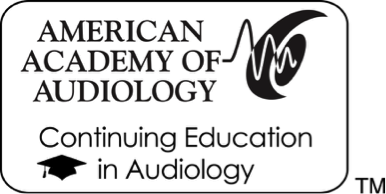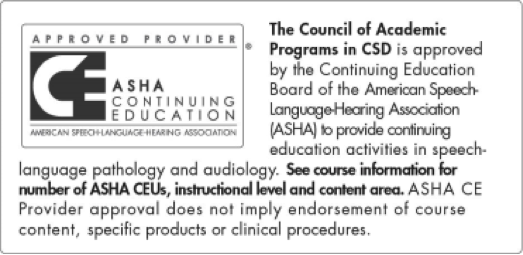Overview
Knowledge and Skills for Effective Clinical Education
In this module, you will focus on the specific knowledge and skills needed to be an effective clinical instructor. These will include skills like the ability to assess a student’s knowledge and evaluate their performance, and the harder to measure skills that define how we relate personally to others and the world around us. You will also take some time to consider the role of ethics and cultural competency in your supervisory role. This module’s activities will put your skills to the test as you engage in highly practical skill analysis and application. You will continue to strategize your skill growth in your Participant Workbook and check your learning in a short quiz.
By the end of this module, participants will be able to:
- Describe the specific knowledge and skills needed for effective clinical instruction
- Explain how the code of ethics shapes one’s supervisory actions
- Consider how a clinical instructor’s own cultural experience and biases might affect their work with supervisees
Continuing Education Information
 CAPCSD is approved by the American Academy of Audiology to offer Academy CEUs for this activity. The module is worth a maximum of 0.25 CEUs. Academy approval of this continuing education activity is based on course content only and does not imply endorsement of course content, specific products, or clinical procedure, or adherence of the event to the Academy's Code of Ethics. Any views that are presented are those of the presenter/CE Provider and not necessarily of the American Academy of Audiology.
CAPCSD is approved by the American Academy of Audiology to offer Academy CEUs for this activity. The module is worth a maximum of 0.25 CEUs. Academy approval of this continuing education activity is based on course content only and does not imply endorsement of course content, specific products, or clinical procedure, or adherence of the event to the Academy's Code of Ethics. Any views that are presented are those of the presenter/CE Provider and not necessarily of the American Academy of Audiology.

This program is offered for 0.25 ASHA CEUs (Introductory level; Related area)
Instructional Personnel Disclosures
| Financial | NonFinancial | |
|---|---|---|
Judith Brasseur |
Receiving compensation from CAPCSD as an Independent Contractor | None |
Mark DeRuiter |
Receiving compensation from CAPCSD as an Independent Contractor Receives salary and honoraria as an employee of the University of Minnesota. | Serves on the CAPCSD Board of Directors |
Elizabeth McCrea |
Receiving compensation from CAPCSD as an Independent Contractor | None |
Learn
Read
(Excerpt) Chapter 9: Preperation for the Supervisory Process, The Supervisory Process in Speech Language Pathology and Audiology Second Edition, Elizabeth McCrea and Judith Brasseur
This selection focuses on the specific implications of working with and teaching adults.
(Excerpt) Chapter 4: Understanding the Supervisory Process, The Supervisory Process in Speech Language Pathology and Audiology Second Edition, Elizabeth McCrea and Judith Brasseur
This selection focuses on the gender, cultural, and age related variations that may affect the supervisor-supervisee relationship.
Cultural Competence, ASHA
This knowledge and skills document is an official statement of the American Speech-Language-Hearing Association (ASHA). It describes the particular knowledge and skills needed to provide culturally and linguistically appropriate services in CSD professions. This document acknowledges the need to consider the impact of culture and linguistic exposure/acquisition on all clients/patients, not simply for minority or diverse clients/patients.
ASHA Issues in Ethics: Supervision of Student Clinicians, ASHA
This Issues in Ethics statement is presented for the guidance of ASHA members and certificate holders in matters relating to supervision of students engaged in the provision of clinical services during practicum experiences.
AAA Code of Ethics, American Academy of Audiology
Refer to Principle 2 referring to supervision.
(Excerpt) Chapter 9: Preperation for the Supervisory Process, The Supervisory Process in Speech Language Pathology and Audiology Second Edition, Elizabeth McCrea and Judith Brasseur
This selection focuses on the specific implications of working with and teaching adults.
(Excerpt) Chapter 4: Understanding the Supervisory Process, The Supervisory Process in Speech Language Pathology and Audiology Second Edition, Elizabeth McCrea and Judith Brasseur
This selection focuses on the gender, cultural, and age related variations that may affect the supervisor-supervisee relationship.
Cultural Competence, ASHA
This knowledge and skills document is an official statement of the American Speech-Language-Hearing Association (ASHA). It describes the particular knowledge and skills needed to provide culturally and linguistically appropriate services in CSD professions. This document acknowledges the need to consider the impact of culture and linguistic exposure/acquisition on all clients/patients, not simply for minority or diverse clients/patients.
ASHA Knowledge and Skills Needed by Speech-Language Pathologists Providing Clinical Supervision, ASHA
As ASHA notes, achieving clinical competence does not imply that one has the special skills required to be an effective supervisor. This resource highlights eleven core areas of knowledge and skills that should be acquired by a supervisor.
ASHA Issues in Ethics: Supervision of Student Clinicians, ASHA
This Issues in Ethics statement is presented for the guidance of ASHA members and certificate holders in matters relating to supervision of students engaged in the provision of clinical services during practicum experiences.
Watch
Cultural Diversity - Tips for communicating with cultural awareness, Speak First
This video clarifies what it means to communicate within the lens of cultural awareness.
Generic Abilities Useful in Clinical Education, CAPCSD
In the 1995 article, "Model of ability-based assessment in physical therapy education", May et al listed 10 generic abilities, in addition to core knowledge and skills, that were essential to success. This video highlights these abilities and what they might look like in the field of clinical supervision.
Apply
Note to Participants
Throughout this course you will be asked to engage with content and with colleagues through free-standing social media tools (e.g., VoiceThread and Padlet). These tools are not moderated and are not directly affiliated with CAPCSD. We do however expect you to conduct yourself professionally in these forums and follow established rules of netiquette. You may disagree with the thoughts shared by others, but please keep comments polite and respectful, and remember… we learn best when we are encouraged to consider other viewpoints. Also, as this content is about clinical education specifically, NEVER post personally identifiable information about your students or patients/clients.
Please report any abuse directly to CAPCSD here: dortiz@capcsd.org.
Activity 1: Evaluating Supervisory Communication Skills
These three videos explore several ineffective supervisory approaches to a specific situation. In each, the language and demeanor of the clinical educator has a strong impact on the experience of the student. As you watch the videos, evaluate the clinical educator’s communication skills with his student. Consider both the core skills expected of a clinical educator in the field, and the "generic abilities" essential to success.
Scenario 1
Scenario 2
Scenario 3
On this Padlet board, respond to one of these videos by sharing one strategy for how to improve this supervisor-supervisee relationship. What essential skills were lacking on the part of the clinical educator? How might the student be made to feel more comfortable voicing her concerns? Read over some of the strategies provided by others and make a list of those that you think would be most useful to you.
Activity 2: Reflect on Cultural Competence
Review the image on this VoiceThread illustrating the three dimensions of “becoming a multiculturally competent health practitioner” as described in the reading for this module. Then add your thoughts by answering the following questions: Is one dimension more or less important than the others? Which is the most challenging dimension for you personally when serving in a clinical educator role? Why?
When you have finished contributing your voice to the VoiceThread, consider completing the ASHA Self-Assessment for Multicultural Competence to help you evaluate your own cultural competence.
Reflect
This module focused on the knowledge and skills one will need to provide effective supervision in clinical education. Take some time to evaluate your skill set by completing the following sections in your Participant Workbook:
PART V: Rate your perceptions of your knowledge and skills. Devise methods to self-observe and analyze your personal Top 3. Track changes over a 6-8 week period.
PART VI: Rate your skills/knowledge in the “10 generic abilities.”
PART VII: List five concrete actions you will take to ensure you employ culturally competent actions with your students and/or model culturally competent practices in your clinical education.
Assess
Complete a quick quiz to assess your understanding of the key concepts from this session. You must receive a minimum score of 80% to receive CEUs.
Extend
The resources listed in this section are optional selections for those who wish to continue their study on this topic.
Read
Higgs, J. and McAllister, L., 2007, Educating clinical educators: using a model of the experience of being a clinical educator. Medical Teacher, 29, e51–e57.
Hird, J. S., Cavalieri, C. E., Dulko, J. P., Felice, A. A. D. and Ho, T. A. (2001), Visions and Realities: Supervisee Perspectives of Multicultural Supervision. Jnl Multicult Counseling & Dev, 29: 114–130.
Supervision and Multicultural Issues, Shelley Victor
Watch
Cultural Diversity in Supervision, Ken Gibson
Please CONTACT US to report any broken links or problems with this page.